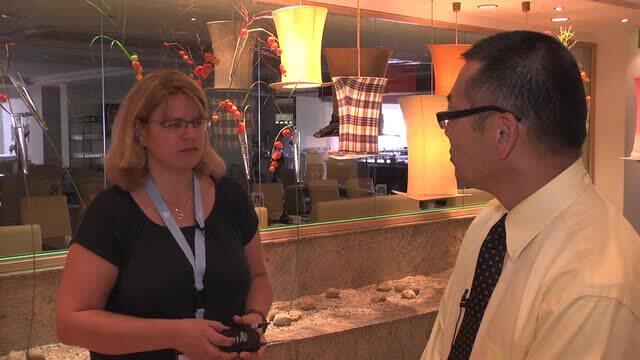
Since its launch in 2011, Ion AmpliSeq targeted sequencing technology has seen broad global adoption and resulted in the publication of over 500 peer-reviewed publications across a broad range of applications.
To browse panel menu or to place an order, visit Ion AmpliSeq Designer at ampliseq.com and sign in. If you do not have an account, follow the registration process to create a new account.
“We’ve created four custom Ion AmpliSeq panels, and all of them are performing extremely well on FFPE-derived DNA.”
— Christopher Corless, MD, PhD, Knight Diagnostic Laboratories, Knight Cancer Institute, Oregon, USA
“The idea is to use Ion AmpliSeq RNA panels to detect changes in RNA settings, like gene fusion, and use DNA panels to detect genomic variations, SNPs, indels, and copy number variants.”
— Dr. Ian Cree, Professor of Pathology, The University of Warwick, Coventry, United Kingdom
Saudi Human Genome Program, King Faisal Specialist Hospital and Research Centre
Dr. Brian Meyer discusses the development and application of a set of 13 inherited disease research panels for studying Mendelian diseases in Arab populations. These 13 panels are also available for ordering via Ion AmpliSeq Designer.
Resilience Project, Icahn School of Medicine at Mount Sinai, USA
Dr. Robert Sebra discusses the design and development of a custom inherited disease research panel that covers more than 700 disease-associated genes (all coding exons covered), including key pharmacogenomics, Mendelian, resilience, cardiovascular, and cancer genes, in addition to over 4,000 hotspot loci. The panel is 4.4 Mb in size and covered by more than 24,000 amplicons across just 2 tubes.
Boston Children’s Hospital, USA
Dr. Janet Chou and Wayne Bainter discuss the application of the Ion AmpliSeq Primary Immune Deficiency (PID) Research Panel v2 to accelerate and improve the search for causal variants in clinical research of PIDs.
National Center of Neurology and Psychiatry, Japan
Dr. Satomi Mitsuhashi, the Section Chief of the Department of Neuromuscular Research at the National Center of Neurology and Psychiatry in Japan, discusses how Ion AmpliSeq panels are faster and more cost-effective mutation-discovery tools compared to traditional methods like multiplex ligation-dependent probe amplification (MLPA) or broader techniques like whole-exome sequencing.
For Research Use Only. Not for use in diagnostic procedures.
